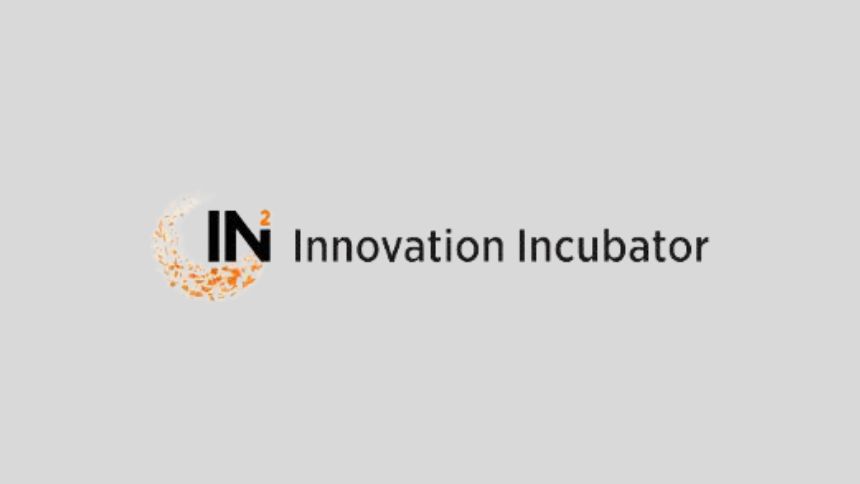
Spark Innovation Center and Dominion Energy named 2025 Channel Partner Strategic Award winners
The partners were one of seven awardees that will receive funding between $100,000 to $200,000.
The Wells Fargo Innovation Incubator (IN2), an energy technology program funded by Wells Fargo and co-administered by the U.S. Department of Energy’s National Renewable Energy Laboratory (NREL), has announced its 2025 Channel Partner Strategic Award winners, and one of the recipients is a collaboration between the Dominion Energy Innovation Center in Ashland, VA, and the Spark Innovation Center at the University of Tennessee Research Park.
With $1 million in funding, this year’s awards support seven national projects, focusing on commercialization and pilot opportunities to drive advanced energy innovation. The Dominion-Spark partnership is focused on creating an interstate coalition of resources, events, and networks, drawing on each partner’s programming strengths to fill gaps in the regional innovation ecosystem. The result will be a robust pipeline for start-ups in Virginia and Tennessee, leading to better commercialization outcomes.

“We’re excited to enter into this partnership with Dominion Energy Innovation Center,” said Lilly Tench, Director of the Spark Innovation Center. “There’s a lot we can learn from one another and a lot of resources we can share to strengthen commercialization opportunities in the region.”
Other recipients and their areas of emphasis are:
- Energy Tech Nexus (Houston, TX), in partnership with Browning the Green Space (Boston, MA), will facilitate technology pilots in Houston and expand upon a successful partnership with local organizations to serve the Gulf Coast region.
- Evergreen Climate Innovations (Chicago, IL), in partnership with Grid Catalyst (Minneapolis, MN), will develop a catalytic investment model for early-stage technologies in Minnesota. This initiative will launch a new fund to address the commercialization funding gap and deliver the first round of investments in the region. The awardees will develop a toolkit to help other regions replicate this impactful approach, driving innovation and fostering growth.
- mHUB (Chicago, IL), in partnership with Centrepolis Accelerator (Detroit, MI), will develop a regional supplier, manufacturer, and entrepreneurial support network that will lower the barriers to hardtech development and create an economic engine of increased manufacturing activity. This partnership builds upon the organizations’ existing supply chain work in Illinois and Michigan by sharing additional knowledge, support, services, and referrals while connecting start-ups to more regional opportunities.
- Cleantech San Diego (San Diego, CA) will pilot a voucher program to provide startups in its Southern California Energy Innovation Network (SCEIN) support for engineering and manufacturing services needed in prototype development, design, and testing. The program will leverage partnerships with member companies and local prototype engineering firms to help SCEIN startups de-risk their energy technology for investors and accelerate their path to market.
- Launch Alaska (Anchorage, AK) will bridge the gap in regional project development by developing a toolkit and enhancing program elements for its Tech Deployment Track accelerator program. The funding will create a shared understanding that enables municipality leaders and startups to explore opportunities together.
- Urban Future Lab (New York, NY) at New York University’s Tandon School of Engineering will launch an action-oriented event featuring peer-to-peer workshops, where start-ups assess market readiness while collaborating with local organizations and industry experts to develop criteria for pilot project implementation.
In making their decisions, the selection committee evaluated applications based on the potential for capacity building, regional collaboration, knowledge-sharing, and action-oriented initiatives to strengthen the energy-tech ecosystem. Selection criteria prioritized proposals that addressed commercialization gaps for energy start-ups or created pilot opportunities by connecting start-ups with new markets through partnerships. Winners received funding between $100,000 to $200,000.
“This year’s awardees embody the bold, collaborative spirit that fuels energy innovation,” said Sarah Derdowski, IN2 Program Manager at NREL. “By closing commercialization gaps and building partnerships that connect startups with prospective end users, these projects are not just advancing individual ventures—they’re shaping a more resilient and adaptable energy future.”
IN2 launched the Channel Partner Strategic Awards program in 2017 to nurture the Channel Partner ecosystem, which includes more than 60 energy technology incubators, accelerators, and universities. Since its inception, the IN2 Channel Partner Strategic Awards program has distributed more than $9 million, supporting 90 IN2 Strategic Awards.
Like what you've read?
Forward to a friend!

